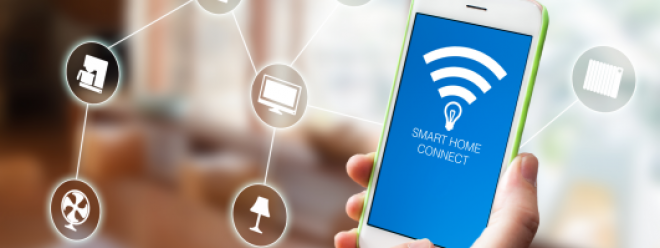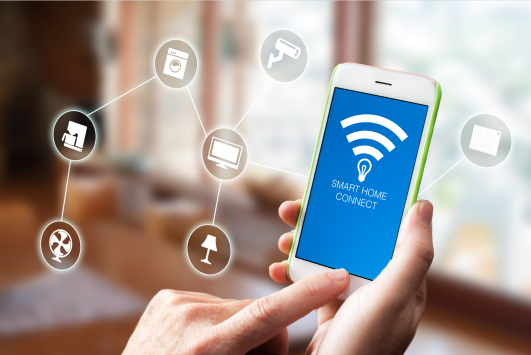Wi-Fi vs. Ethernet: How good is a wired connection?

Wi-Fi vs. Ethernet: How good is a wired connection?

Wi-Fi is obviously more convenient than wired Ethernet cables, but Ethernet still has significant advantages. Join us as we look at the pros and cons of wired and wireless connectivity.
You probably won't be connecting your smartphone with an ethernet cable anytime soon. But it's often worthwhile to connect an Ethernet cable to important devices if you can -- gaming and media PCs (or consoles), backup devices, and set-top boxes are just a few examples. To help you decide, we'll look at the top three advantages of using Ethernet over the best Wi-Fi routers—faster speeds, lower latency, and a reliable connection.
How Fast is Ethernet?
Ethernet is much faster than Wi-Fi—there's no getting around the fact. But the real-world differences are smaller than you might think. Wi-Fi has accelerated significantly over the past few years, thanks to new standards such as 802.11ac and 802.11n, which offer top speeds of 866.7 Mb/s and 150 Mb/s, respectively. Although this is the maximum speed shared by all your wireless devices (and you probably won't get those speeds in the real world), Wi-Fi is more than sufficient for most of our day-to-day tasks.
On the other hand, if you have Cat6 cable, a wired Ethernet connection can theoretically provide speeds of up to 10 Gb/s. The exact maximum speed of the Ethernet cable depends on the type of Ethernet cable you are using. However, even common Cat5e cables support up to 1 Gb/s. And, unlike Wi-Fi, the speed is consistent.
While all of these speeds are great, keep in mind that the speed of your Internet connection is the bottleneck for Internet-related activities. If your internet speed is significantly lower than any type of connection you're using, it doesn't matter much to increase the speed of that connection.
However, Ethernet affects the speed between devices on the network. For example, if you want to transfer files as fast as possible between two computers in your home, Ethernet will be faster than Wi-Fi. Your internet connection is not involved, so it all depends on the maximum speed your local network hardware can provide.
Here are just a few good examples of when local speed might matter:
- If you have multiple devices backing up to a NAS, backup server, or shared hard drives, backing up over an Ethernet connection is faster.
- If you have a device that streams from a media server on the network (like Plex or Kodi), an Ethernet connection will greatly improve the streaming quality.
If you're curious about the difference in local file transfer speeds, try transferring a large file between two computers with both computers connected to Ethernet and both connected to Wi-Fi. You should see the speed difference there.
How much is the latency reduction provided by Ethernet?
Connection speed and quality are not just about raw bandwidth. Latency is also an important factor. Latency in this context refers to the time delay it takes for traffic to travel from the device to its destination. We often refer to latency as the "ping" in the world of networking and online gaming.
If your concern is to minimize latency—for example, if you're gaming online and need the fastest possible response time—you're probably better off using a wired Ethernet connection. Yes, there are other factors of latency in the internet path between your device and the game server, but every little bit helps.
On the other hand, if you're just streaming video, listening to music, or browsing the web, latency doesn't matter to you.
You can test the latency by running the ping command at a terminal or command prompt. Ping the router's IP address when connected via Wi-Fi and when connected via Ethernet. Compare the results to see how much latency Wi-Fi adds.
In conclusion, with Wi-Fi, there is more delay as the signal travels back and forth between the Wi-Fi device and the wireless router. With a wired ethernet connection, the latency is much less.
Wireless interference and connection reliability
Ethernet provides a more reliable connection than Wi-Fi. It's that simple.
Wi-Fi is more prone to interference than wired connections. The layout of your home, objects blocking the signal, interference from electronic devices or neighboring Wi-Fi networks—all of these make Wi-Fi generally unreliable.
This interference can cause many problems:
- Loss of signal: Wi-Fi sometimes loses signal and must regain signal. This might not be a big deal for everyday browsing or even streaming video (buffering on the local device), as refetching happens quickly. But if you play online games, it can get very annoying.
- Higher latency: Increased interference can mean higher latency, which can be a problem for all the reasons we outlined in the previous section.
- Reduced speed: More interference also means lower signal quality, resulting in lower connection speeds.
It's hard to quantify interference because it tends to ebb and flow -- especially when you're walking around with your device. However, there are things you can do to reduce wireless interference and get the best Wi-Fi signal possible.
When does it make sense to use Ethernet?
We don't mean to be too harsh on Wi-Fi. It's very fast, super convenient, and totally usable for most of the things we do on the web. On the one hand, Wi-Fi is essential if you have a mobile device. Also, sometimes you can't use ethernet. It may be difficult to connect permanent, out-of-the-way cables to your desired location. Or, your landlord may not allow you to run the cable your way.
That's the real reason to use Wi-Fi: convenience. If your device needs to be moved around, or you just don't want to connect cables, Wi-Fi is the right choice.
On the other hand, if you have a desktop PC or server, Ethernet might be a good choice. If you want higher quality streaming (especially if you're doing it from a media server on the network) or if you're a gamer, then Ethernet is the way to go. Assuming it's easy to plug in the device with an ethernet cable, you'll get a more stable connection.
Finally, Ethernet offers the advantages of faster speeds, lower latency, and more reliable connections. Wi-Fi offers convenient advantages and is sufficient for most purposes. So you just need to see if your device fits into the category where ethernet will make a difference and decide if it will make a big enough difference to run some cables.